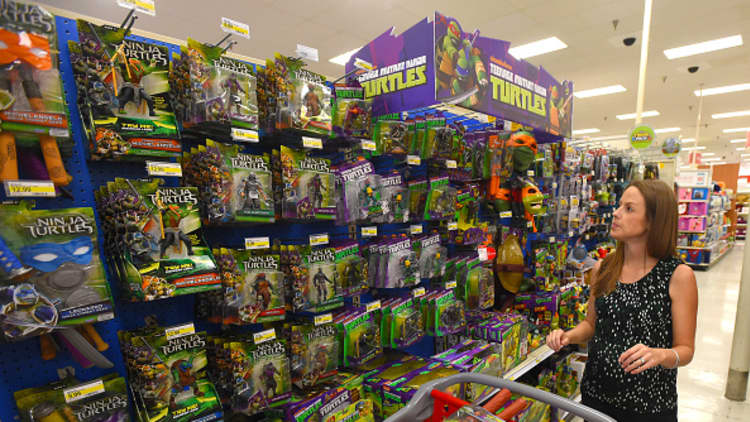Can't find that hot holiday toy your kid wants? It may be for the best.
Parents who attempt to buy everything on their kids' holiday wish lists could actually be doing more harm than good, according to a new report from T. Rowe Price.
The survey, conducted shortly after last year's holiday season, sampled 1,013 parents who have kids age 8 to 14. A little less than half (45 percent) said they "try to get everything on my kids' lists, no matter the cost."
Problems with that attitude come on two fronts:
First, many gift-happy parents take drastic measures to make their kids' holiday wishes come true, with 59 percent saying they spent more than they should have and 48 percent taking on debt. One in 10 of those dipped into their emergency funds to cover purchases, while 7 percent have taken a payday loan and 4 percent have withdrawn from retirement savings.
Those choices can have far-reaching financial consequences.
Second, experts say kids who get everything on their holiday wish lists may develop poor money habits themselves. Among those indulgent parents in the T. Rowe Price survey, 69 percent report that they've been unsuccessful in getting their kids to save money instead of spending it right away.

Stuart Ritter, a senior financial planner at T. Rowe Price, said kids who get everything they want for the holidays are missing out on a chance to practice aspects of money management.
"One of the key skills that people need to develop as part of their financial lives is prioritization and making trade-offs: differentiating what kinds of things are important, what kinds of things are less important and how do I manage my money in a way that reflects those values," he said.
"If the kid is getting everything that is on their list, they don't have the opportunity to go through that prioritization process," Ritter said. "They don't have to decide which things are more important and which are less important, and communicate that to their parents."
It's beneficial for kids to learn about disappointment at a young age, said Kit Yarrow, a professor emeritus of marking and psychology at Golden Gate University in San Francisco. Kids who get everything they want can quickly adjust to that reality, which can lead to bigger and bigger expectations.
If the kid is getting everything that is on their list ... they don't have to decide which things are more important and which are less important, and communicate that to their parents.Stuart Rittersenior financial planner, T. Rowe Price
"This creates adults who can't handle not getting what they want," she said. "They're not resourceful about budgeting. They haven't built up resistance around disappointment and so they might go into credit card debt, for example, because they think they're entitled to everything."
Ideally, the family holiday budget is something parents should talk about openly, said Paul Golden, a spokesman for the National Endowment for Financial Education. Have your children make a list, and then sit down with them and discuss what on the list they consider a need and what they consider a want.
"You want them to learn to prioritize what is going to be purchased or what they're likely to receive on that list," Golden said. "You want them to think about how they can't have everything that they want."


